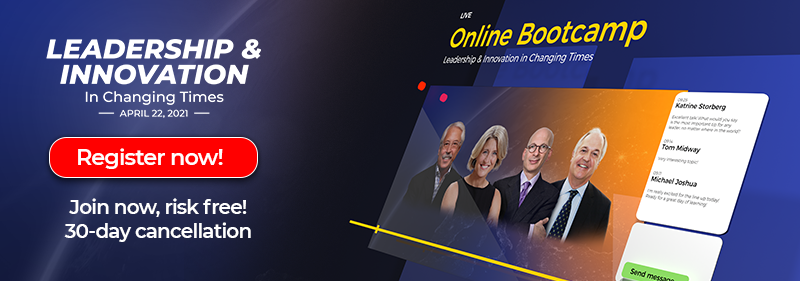On 11 March, we had an intriguing discussion about simplifying work with Lisa Bodell on Clubhouse. Bodell gave us so much food for thought that we wanted to share a few pieces of advice here too.
Why is simplicity so powerful?
“Complexity is the enemy of meaningful work, whereas simplicity allows us to focus on the things that matter,” said Bodell.
She explained that when we talk about complexity, people usually think about regulations and bureaucracy. However, complexity is often also tactical, for example, emails and meetings. The problem with emails and meetings is that many of us spend the majority of our time on those. And if that’s all we are focusing on, there’s no time for meaningful work like engaging with customers or innovating new things.
“I don’t think anyone was hired to lead great meetings or write amazing emails,” Bodell pointed out. So, we should focus on simplifying and getting rid of those useless emails and meetings.
How can you simplify work?
Bodell mentioned a few behavioural things, but also a couple of practical tips on how to begin. First of all, when talking about meetings and emails, she spoke about how people sometimes “create false urgency”. Often we feel we need to do something immediately even though in reality it could wait. Therefore, you need to prioritize internally (also externally if possible) the issues that are important, and point out the things that can actually wait.
She also mentioned that we should spend more time thinking about what communication tool we should use for which issues. “Emails are for information but meetings are for decisions,” Bodell elaborated.
One practical exercise she advised us to do was to “kill a stupid rule”. She mentioned that you should do this in your company with the entire team at least yearly. You simply list all the stupid rules that you have in your organization, and then decide which ones of those you can and should get rid of.
How to simplify the right things and the right amount?
So, how do you actually know what you should get rid of and what is meaningful work?
Bodell, explained that you can begin determining this with a simple exercise. You should put down on paper your ‘typical tasks’ and your ‘desired tasks’. After you’ve listed all the things, you should circle those typical tasks you feel you should be doing. She mentioned that what people often find is that they are not circling too many things, so there are many typical tasks on the list that you can and should kill.
Bodell also highlighted that sometimes companies go too far with this idea, and actually oversimplify. “It’s not about having no rules, but it’s about questioning which rules are valid”. So as with many things, simplifying is about balance; finding the meaningful things to focus on, and cutting the meaningless tasks you waste your time on.
Finally, she highlighted that you should remember that simplifying doesn’t mean that you will free up time to do more. It’s actually better if you simplify your work in order to think more.
We are excited to have Lisa Bodell joining our Online Bootcamp on 22 April! If you want to learn more about innovation and simplification, check out the event website and get your access now.

